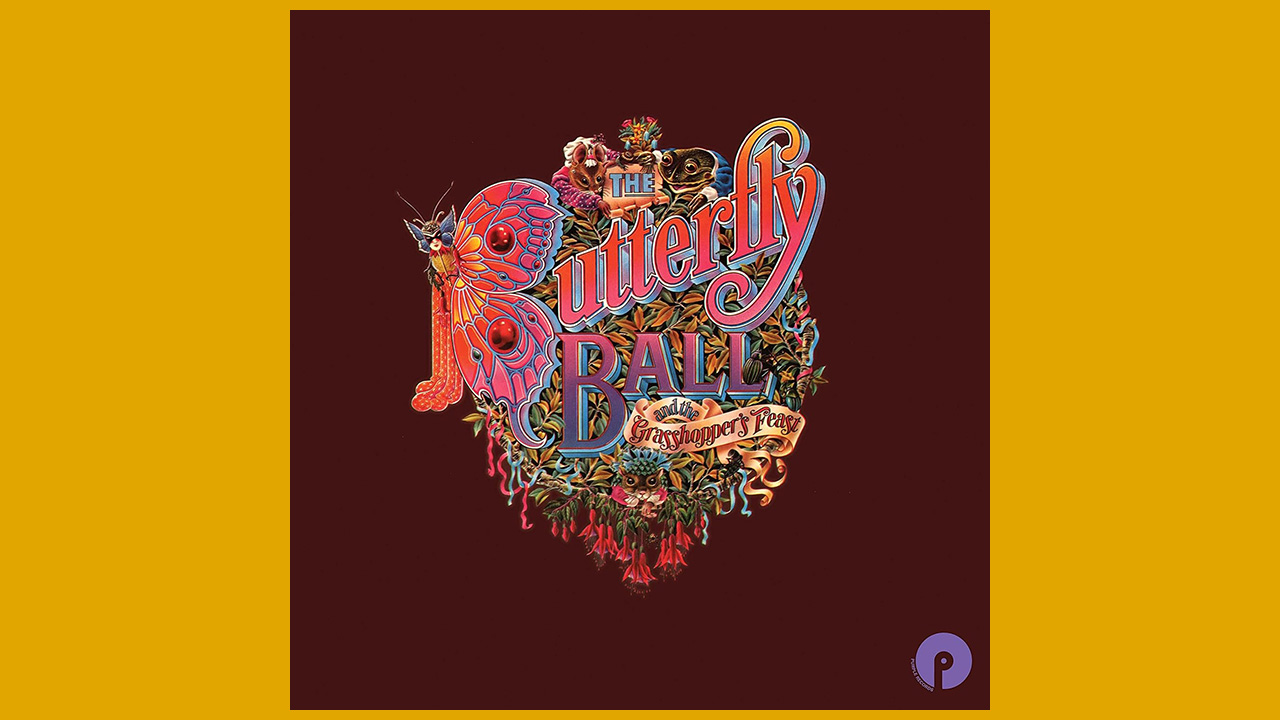In 2018 Deep Purple veteran Roger Glover told Prog bout his unexpected 1974 hit album The Butterfly Ball And The Grasshopper’s Feast, based on a children’s picture book and designed to be the soundtrack to a movie that was never made.
In 1973, Alan Aldridge and William Plomer published a picture book titled The Butterfly Ball And The Grasshopper’s Feast, based on a 19th-century poem of the same name by William Roscoe.
On the surface, it seemed unlikely to stir any conceptual inspiration from a former Deep Purple member – but, as Roger Glover recalls, it did just that.
“I’d seen a four- or five-page feature in the colour supplement of a Sunday newspaper, and I thought then it looked a bit lively,” he says. “Then in 1973, after I had left Purple, I went into our management’s office one day and saw the book on a table there. And at that point I was asked if I fancied doing an album based on it.”
The initial idea was a soundtrack to accompany a proposed movie, and Glover hadn’t been the first choice for the job. “Pink Floyd were asked to do it, but they weren’t available. Jon Lord was also approached and turned it down. So it came my way.
”But I was excited by the possibilities; it allowed me to go in any musical direction. I could be as inventive as I wanted.”
Despite the logistical difficulties in co-ordinating the vast array of talent that appeared on the album, what emerged was an impressive musical experience. Its range spanned psychedelia, folk and flamboyant pop rock.
The listener can hear how bands like Kansas might well have been influenced
But Glover made sure it didn’t become a whimsical dalliance by using master craftsmen like prog stars Eddie Jobson and Michael Giles to great effect. He also had a different vocalist for every character.
“I wanted voices that captured the personality each of the roles had,” he says. “I didn’t want to get in experienced session vocalists. I didn’t believe they could do justice to what I was after. What mattered was more the personality of the singer coming through, rather than the quality of the voice.”
The movie never got made – but the album, released in November 1974, was a big success. Love Is All was also a surprise hit single, and No Solution was a very early example of lyrics that dealt with environmental issues.
In many ways, the listener can hear how bands like Kansas might well have been influenced by The Butterfly Ball; there there are clear elements of pomp rock throughout.
“It now sounds of its time,” Glover accepts. “But I still get Purple fans coming up to me and saying how much they liked what I did musically on it.”



